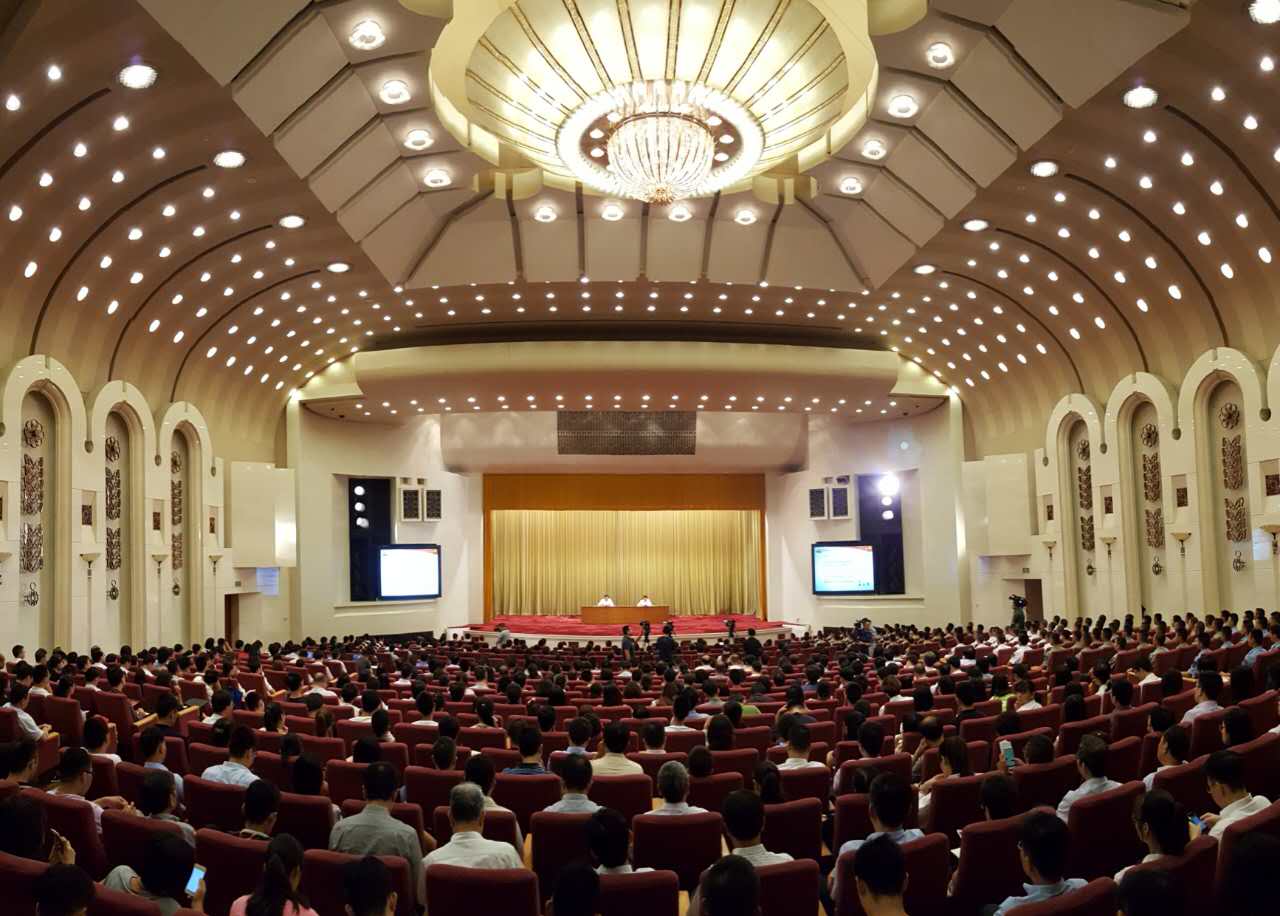Briefing held on five-year achievements in socio-economic development
A briefing was held on the achievements in socio-economic development in the past five years on Aug. 18, as part of a series of reports on China's achievements made since the 18th National Congress of CPC in 2012.
|
|
|
A briefing is held on the achievements in socio-economic development in the past five years in Beijing, Aug. 18, 2017. [Photo/CCTV.com] |
He Lifeng, director of the National Development and Reform Commission, said in his speech that China has made remarkable socio-economic achievements since the 18th National Congress of the Communist Party of China under the leadership of the Party Central Committee with President Xi Jinping at its core.
He pointed out that the Chinese economy has entered a new normal, with the supply-side structural reform as the key, following a new vision for development, in a bid to seek progress while keeping performance stable.
He said that maintaining China's sustainable economic development is a long and arduous task, requiring its policymakers to bear in mind new methods of governance.
The achievements were made in the following eight aspects.
First, innovation and macro control. China's macro economy maintained 7.2 percent annual growth, 2 percent in inflation and around 5 percent in unemployment rate, was all of which fell within a reasonable range, and contributed more than 30 percent of the global growth
Second, the deepened supply-side structural reform. Initial progress was made in the supply-side structural reform, ensuring substantive progress in cutting overcapacity, reducing excess inventory, deleveraging, lowering costs, and strengthening areas of weakness.
Third, continued improvement to the socialist market economy, promoting reforms on streamlining administration, on SOEs, and on finance tax, in a bid to enable the market to play a decisive role in resource allocation and the government to play its role.
Fourth, implementation of the strategy of innovation-driven development. China continued to encourage start-up businesses and innovations, in order to create more space and momentum for growth.
Fifth, the coordinated development in both urban and rural areas. Great progress was made in advancing the Belt and Road initiative, the coordinated development of the Beijing-Tianjin-Hebei region, and Yangtze River Economic Belt. China made comprehensive plans and gave guidance tailored to different circumstances in large-scale development of its western regions, fully revitalizing the old industrial bases in northeast China, spurring the rise of the central region and supporting the eastern region in taking the lead in development. China's urbanization has been carried out proactively and prudently.
Sixth, promotion of connectivity of policies, infrastructure, trade, finance and people, which was guided by the Belt and Road initiative. Overseas investment increased steadily. Foreign investment structure was improved. China further expanded its opening up policies both in scope and depth.
Seventh, ecological progress made to support a sustainable, energy-saving production mode.
Finally, people-first development. Continued improvement has been made in people's livelihood by implementing targeted poverty alleviation and elimination measures. This year China will further reduce the number of rural residents living in poverty by over 55.64 million.
The briefing was presided over by Jiang Jianguo, minister of the State Council Information Office. About 800 people from all walks of life, including government officials, military officers, executive officers of centrally administered state-owned enterprises as well as teachers and students from Beijing-based universities, attended the briefing.
